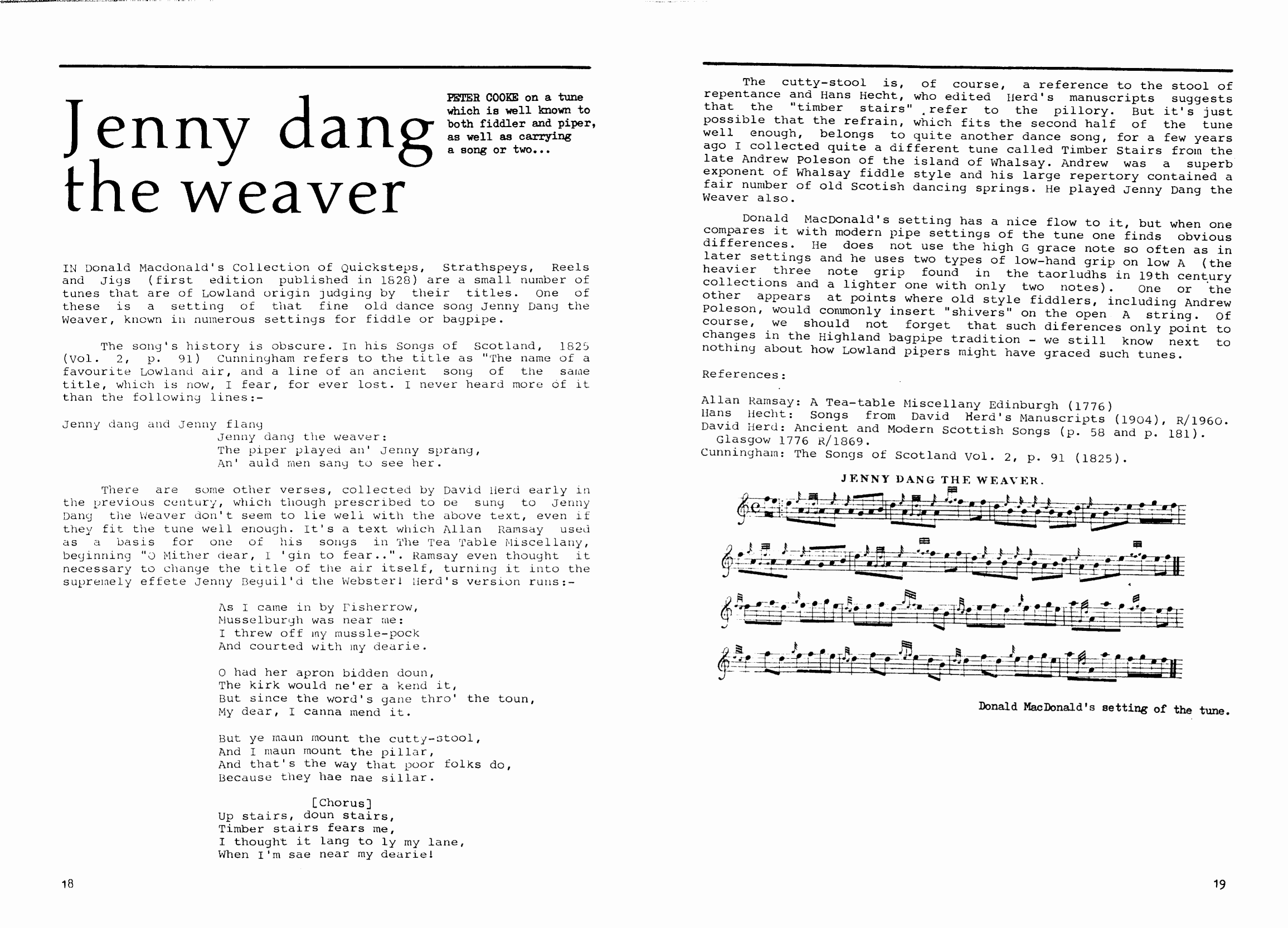Hawick-Teribus Ye Terioden

IN 1694 amongst a list of subscribers to the founding and casting of a new bell for the tolbooth in Hawick, one Thomas Beattie- pyper, donates 14s. In 1700 the town's piper,"for his nicht revelling in going on the fair nicht and playing with the great pipe thro the haill towne", is fined 100. The riding of the marches has always been an important event in Hawick, and at such ridings the important officials were the Cornet, who carried the town pennon, the two Baillies, the Town Clerk or notary, the town piper and drummers, and the four men who carried the spades.
In 1703 on May 17, the following minute appears in the burgh records. "The said day the bailyeas and counsell allowed and ordained Robert Aitkinson and David Wilson, carier and George Deans, pedder, to pay into Baylyeas Mertine sex pound per piece, inde eighteen pound for payt of the officers, pyper and drummers coats att the Common-Ryding this year as formerly".
On May 13, 1712 “The said day they ordained the toune treasurer to furnish and provyd as cheape as he can als much cloath of ane colour as will be four coats for the two officers, pyper and drummer." On May 10, 1726, “The Council ordain the officers and drummer get ribbons and William Donaldson (piper) a pair of shoes for the common riding".
On May 4, 1727, “The treasurer to give new coatts and ribbons to the officers; piper and drummer."
However, 1n 1747, whilst most of Scotland was ain the depths of economic depression following the "45", the council of Hawick met and “considering the many debts and burdens the council are in, resolve to retrench some superflous expenses, such as giving the officers broad cloth to be coats, and fine hats; in place whereof they are to have coarse home made cloth coats and coarse hats, each coat not to cost above 3 half crowns and each hat not above 14 pence, and the towns-piper to have no allowance doe playing at common ridings, or other such times, from the treasurer but what people shall give him out of their own pockets; neither are the King's birthdays to be kept up on the town's expense, but out of the burgesses' private pockets."
The above edict probably meant the beginning of the end of the tradition of town pipers in Hawick. Be warned all local government employees - history does repeat itself!
1803 -- "The Council resolve that the pipers shall not be any longer continued."
‘Teribus' is the pipe tune associated with Hawick and is played at the Common Riding. Various explanations have been given as to the meaning of this title in full 'Teribus ye Terioden'. Sir J.A.H. Murray thought it meant an invocation to Thor and Odin. "Associated with all versions of this sony is the refrain ‘Tyr-ibus ye Tyr ye Odin' or ‘Tyr haeb us Tyr ye Odin' or ‘Tyr keep us both Tyr and Odin.' It appears to have come down to us scarcely mutilated from the time when it was the burthen of the song or gleo-maun, or scald, or invocation of a heathen Angle Warrior."
Charles Mackay disagrees and makes it the inheritance of the Cymri. "Teribus ye terioden' was the war cry of the men of Hawick at Flodden and still preserved in the traditions of the town. ‘Teribus ye terioden' is an attempt at the phonetic rendering of the Gaelic ‘Tir a buaidhs tir a dion', which when translated means "Land of victory and land of defence'." Jamieson in the Scots National Dictionary thinks both these explanations too far fetched and attributes ‘Teribus ye terioden' to the sound made by bagpipe and drum.
Annals of Hawick, in James Wilson, Edinburun 1850, pp. 80, 101,
Scots National Dictionary - Jamieson.

